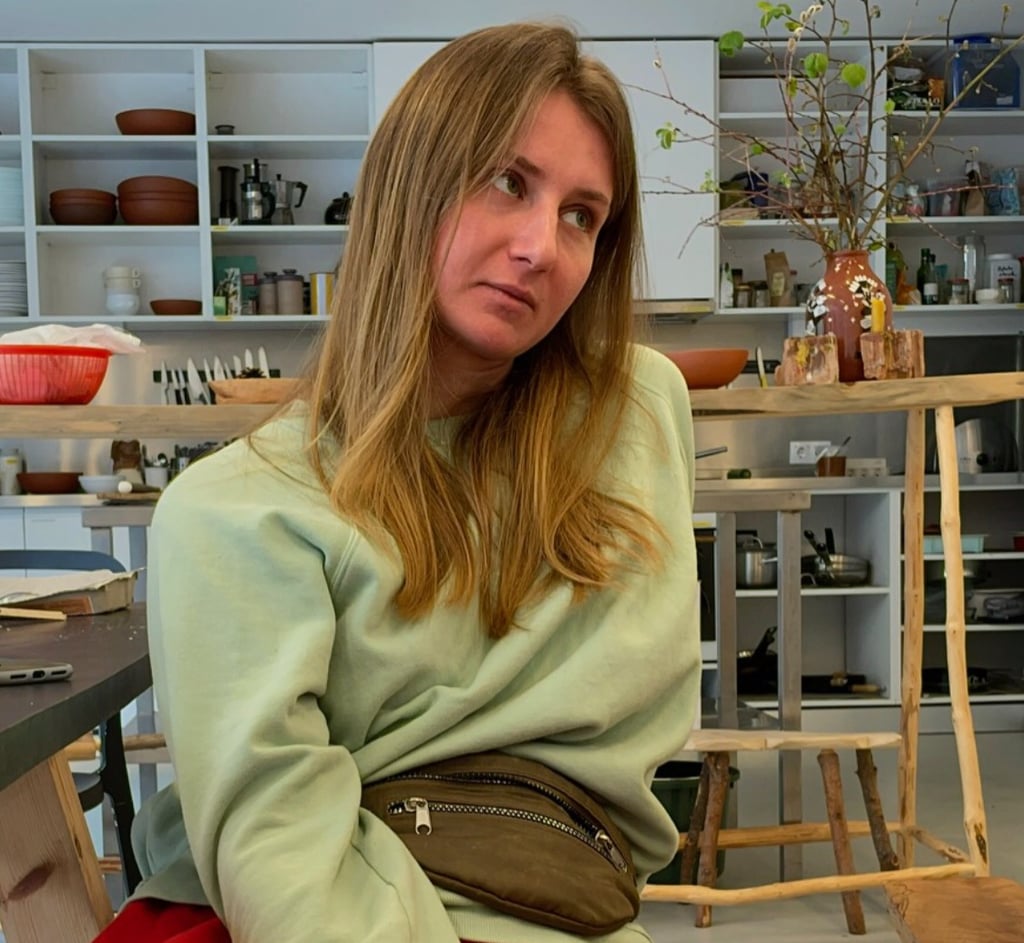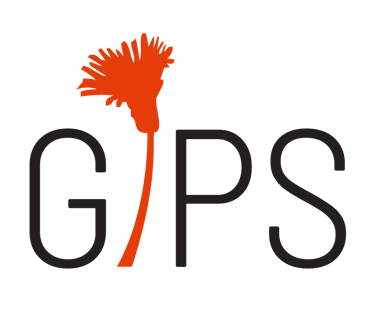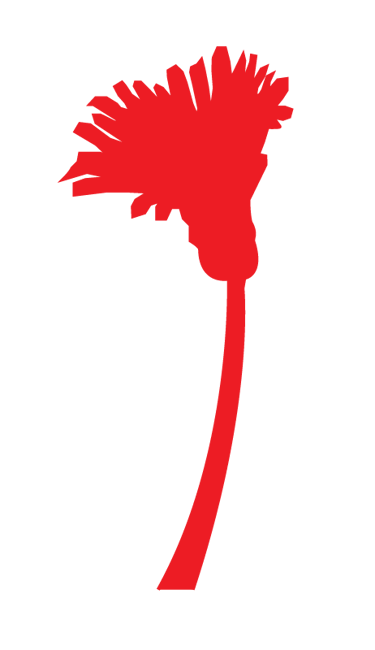Portraits of Members: Vasilisa from the Association of "Ukrainians in Neringa"
Vasilisa, an administrator at the Nida Art Colony, tells her personal journey—from Sevastopol to Nida—and her resilience in founding and organising the association with her peers in Neringa
ENGLISH
12/27/20236 min read
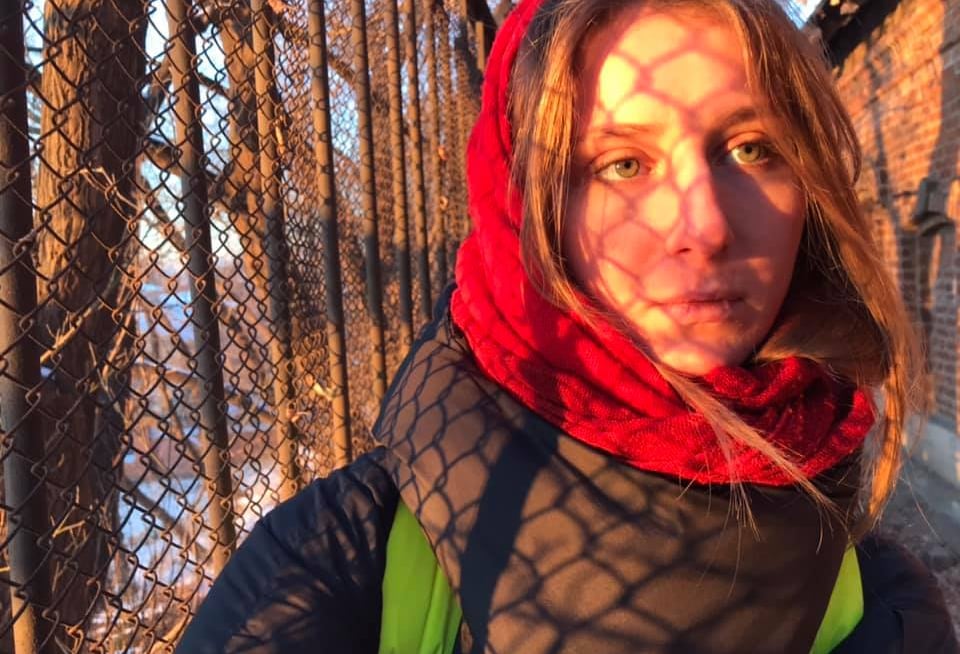

I am a social anthropologist by education. For a long time I studied the anthropology of time, then switched to human ethology and the study of school bullying. In parallel with my scientific life, I baked sweets to order, studied modern academic and experimental music, performed plays, participated in theater, dance and interdisciplinary projects, then began to organize and coordinate events related to anthropology, music and field recordings of sound, and for the last 4 years I have been more and more seriously engaged in dance
Now I work as an administrator at the Nida Art Colony of the Vilnius Academy of Arts (NAC of VAA) – this work takes up almost all the time, so scientific, musical and dance life are put on pause.
The idea to create an Association came to us together with Jurgis. In the summer of 2022, Jurgis came to NAC several times, we met, and I found out that he was engaged in protecting workers' rights. Then I told him about the difficult working conditions in restaurants and hotels in Nida, as well as the sudden increase in rates for water and electricity. This happened in the hostel where most Ukrainians, who left for Neringa because of Russia's full-scale military invasion of Ukraine, live. Then the situation was critical; knowing that there was no work in Neringa in winter, people agreed to any conditions of seasonal earnings, worked without a contract or under strange contracts, did not receive payment or received only with huge delays, and in the end it turned out that they would have to spend almost all of the summer earnings in a few months only on the communal apartment.
At first, Jurgis provided free consultations on issues related to work contracts and working conditions, and then we decided to try to found an association in order to solve difficult problems together and optimize communication with the municipality by officially informing the local administration about the existence of an Association of Ukrainians.
Gradually, during the autumn of 2022, a group of keen Ukrainians gathered. We began to hold weekly meetings, solved difficult issues together, and in early 2023 we officially founded the association of “Ukrainians in Neringa” as a branch of the G1PS trade union and established official contact with the municipality of Neringa.
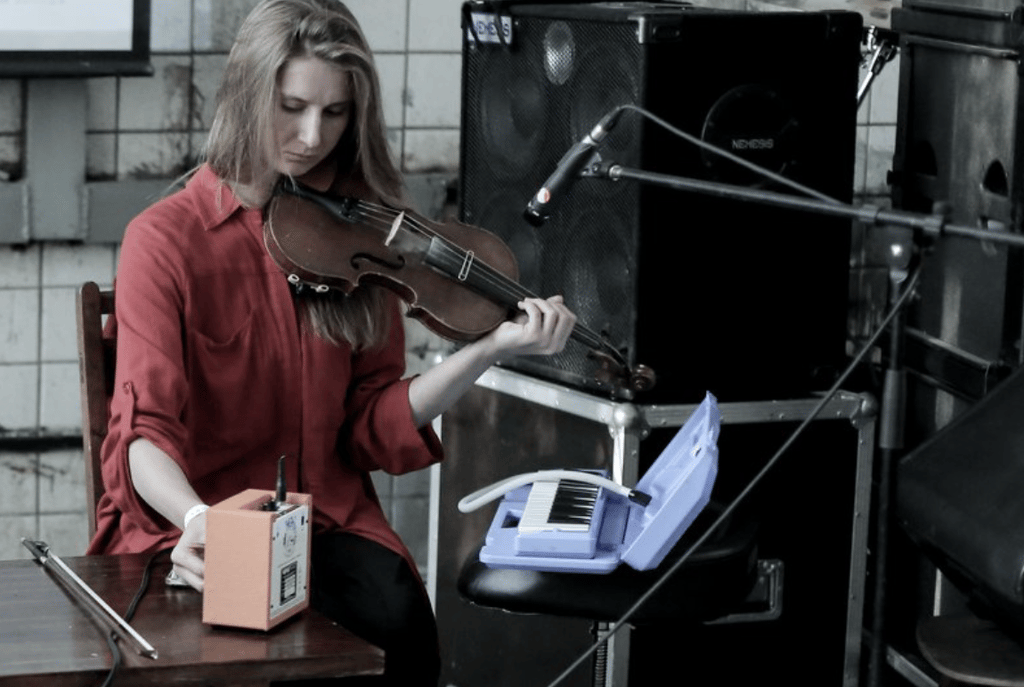

For me, being a member of a trade union is primarily about fighting despair and victimisation. I know that if I give up and passively accept unfair treatment, it will get worse, and not only for me, but also for others. By joining a trade union and participating in its activities, I kind of help myself not to forget about it. I also sincerely believe in the power of horizontal connections and small things. I think that trade unions are really capable of making significant changes for the better (or at least preventing changes for the worse).
The main goals of our association are to improve the working and living conditions of Ukrainians living in Neringa, as well as to disseminate information about ways to protect their rights in the workplace. In addition, the Association has another important task: fighting the feeling of helplessness and loneliness. The collective solution of problems (even small ones), the opportunity to openly talk about big problems, as well as the knowledge that there are people nearby who will support and try to help in a difficult situation, and the connection with the trade union (that is, with caring and supportive residents of Lithuania outside Neringa) – all this creates a feeling of at least partial protection and slightly glues together the soil spreading underfoot.
My role in the Association's activities is coordination, communication and representation. I initiate and hold meetings, collect information, requests and ideas, represent the interests of the Association in communication with the municipality, at meetings of the G1PS Council, advise on work-related issues, or redirect questions to colleagues from the trade union. In general, I try to notice problems, invite people to discuss these problems and come up with ways to solve them together.
How did I end up in Lithuania? It's a long story. I was born in Ukraine, in Sevastopol, but from early childhood until the spring of 2022 I lived in Moscow (my parents moved there – dad from Kazakhstan, mom from Ukraine). I have Russian citizenship and a confusing Ukrainian-Russian ethnic identity. Answering the question "where are you from?" I always feel like an impostor, because I didn't really live in Sevastopol and spent no more than 2-3 months a year there, but Moscow never became my "hometown" either.
Lithuania appeared in my life by accident: in the summer of 2011, my school friend went to Vilnius to visit a classmate, and I asked to go together. We ended up in Nida. I was very impressed and started coming to Nida every summer. Then my father went missing and was declared dead – after receiving an inheritance, my mother and I decided to buy a house outside the Russian Federation. So Nida became my third not-quite-home, and since 2014 I have been coming here for 2-3 months out of six on a Schengen visa.
When the Russian Federation started a full-scale war with Ukraine, I began to actively express my position. It was painful to hear calls to be careful and not post too much on social media. I couldn't think of anything but forms of protest, and eventually realized that if I stayed in Moscow, one way or another I would end up either in prison or in a very deep depression. A friend shared some information she accidentally found on the web about the Lithuanian initiative to support Russian citizens with an anti-war position. I sent them an email basically giving myself in. It turned out that this was not a fake by the FSB (Russian Federal Security Service), but a true Lithuanian initiative.
I had an open Schengen visa, a Sputnik vaccination certificate (which could allow me to enter Estonia) and a recent immunity from covid. Flights from Moscow were constantly canceled and ticket prices were soaring. In the second attempt in early March I flew out, got to Estonia via Dubai and Frankfurt, stayed for a few days with a friend who had already lived there for several years as a political refugee, and then took a bus to Lithuania.
I had little chance to stay here (my visa expired in May, and I was planning to fly to Armenia), but by some miracle I was hired at NAC and I managed to apply for a residence permit two days before the expiration of my legal stay in Lithuania. Later it turned out that my employment was indirectly related to the fact that I joined that Lithuanian initiative. Overall, I've been extremely lucky many times.
It is difficult for me to express in words the depth of my gratitude to the residents of Lithuania for their help and support in those terrible days when peaceful life ended, in those weeks and months when the scale of irreversible destruction and losses was just beginning to unfold. I was incredibly lucky to be here. I could not even imagine that I would meet so much attention, understanding, empathy, sensitivity and life-affirming power. People not only helped to survive, but also found ways to get out of the "survival mode" into life. There are so many sincere and serious conversations, so much warmth – not to mention material and political support.
There is only one episode that got under my skin. In the spring of 2022, I had a short conversation with an employee of a bicycle store, and he said that he was glad that Ukrainians were coming to Lithuania, because they were close to Lithuanians – unlike Africans and Arabs. It is very difficult for me to think that support and assistance to Ukrainians in some cases may be motivated by such a classification as "our own" in contrast to the rejection of "alien" refugees and migrants. And at the same time, I see that a lot of people in Lithuania persistently fight discrimination and many are more sensitive and attentive to this issue than I am.
For those who want to organize something, but are afraid to do it, I wish them to remember this: some activities give you more strength than they take away. What we think about something before we start it is very different from what happens when we start doing it and when we continue doing it (if we do). I would also like to trust other people and not think that every little thing depends on you. A lot of things don’t go according to the plan and they should not. And that’s good. Otherwise there would be the dictatorship of the plan.
